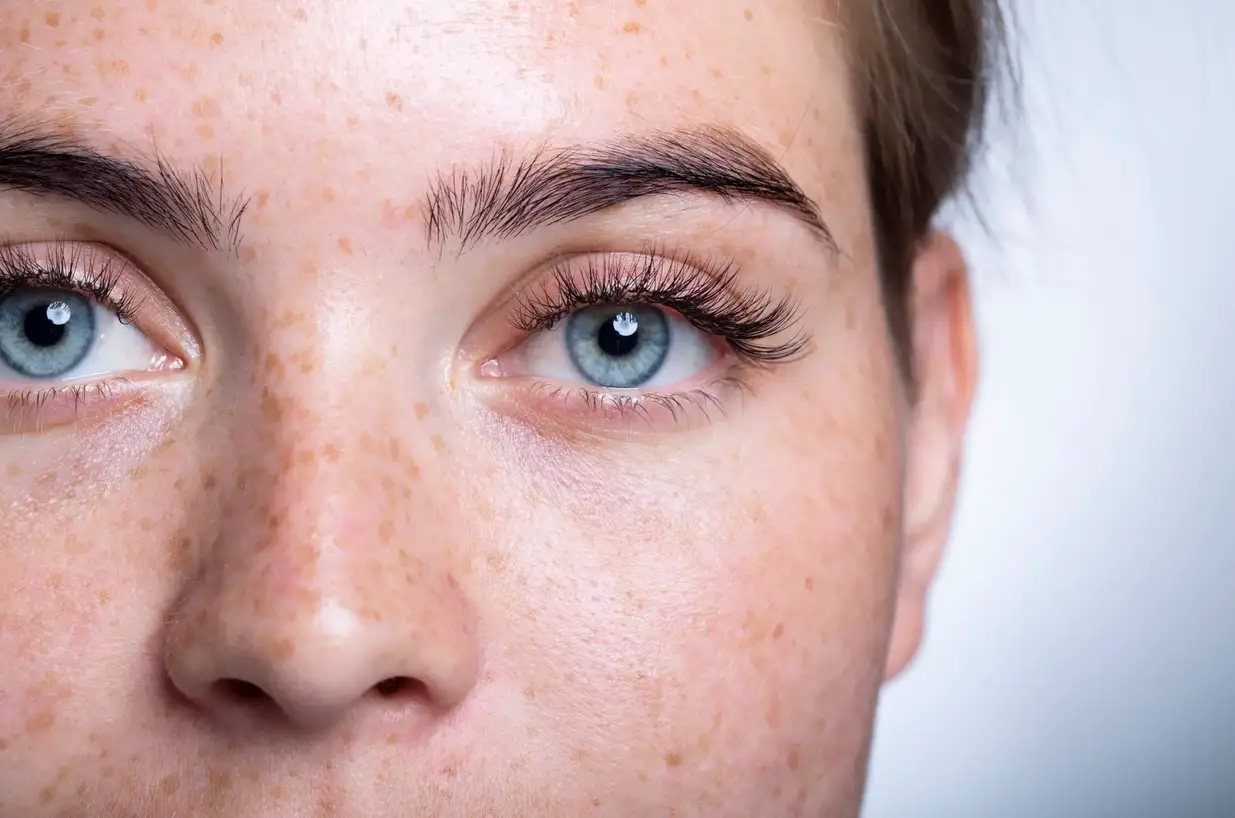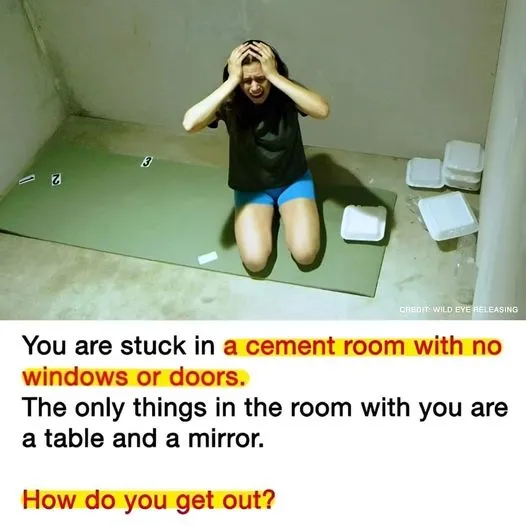
Experts have shared what to do if you see ‘eye floaters.’
 The eyes are considered the most important organ of sense, as we perceive up to 80 percent of all impressions through our sight.
The eyes are considered the most important organ of sense, as we perceive up to 80 percent of all impressions through our sight.
Our sense of sight is responsible for most of the information we absorb from our five combined senses.
 The movements we perform, the tasks we complete, and personal interactions rely on vision somehow. Even sleep schedules are affected by the light we see during the day so having healthy eyes is hugely important.
The movements we perform, the tasks we complete, and personal interactions rely on vision somehow. Even sleep schedules are affected by the light we see during the day so having healthy eyes is hugely important.
Eyesight deterioration is a natural part of aging and usually isn’t any reason to be concerned, and one of the major symptoms includes eye floaters.

Many people are relieved to find out they are not the only ones experiencing ‘floaters.’
Someone writes: “I’ve learned about something new today, called ‘floaters?’ I always thought I had something in my eye.”
 Another adds: “I keep seeing ‘flies’ everywhere, I keep rubbing at my eye but there’s really nothing there, it is so frustrating. I have constant floaters.”
Another adds: “I keep seeing ‘flies’ everywhere, I keep rubbing at my eye but there’s really nothing there, it is so frustrating. I have constant floaters.”
“I thought this was just me, I keep thinking there’s a spider or fly… waving my arms like I’m crazy, only to realize it’s a floater,” a third responds.
 Eye floaters are very common, affecting about seven in ten people, and can show up at any time.
Eye floaters are very common, affecting about seven in ten people, and can show up at any time.

Mayo Clinic reads: “Eye floaters are spots in your vision. They may look to you like black or gray specks, strings, or cobwebs. They may drift about when you move your eyes. Floaters appear to dart away when you try to look at them directly.”
 Most eye floater issues are caused by age-related changes when the jelly-like substance (vitreous) inside your eyes liquifies and contracts.
Most eye floater issues are caused by age-related changes when the jelly-like substance (vitreous) inside your eyes liquifies and contracts.
“As you age, the protein fibers that make up the vitreous shrink into little shreds that clump together,” writes Web MD specialist Rick Ansorge.
 Scattered clumps of collagen fibers form within the vitreous and can cast tiny shadows on your retina. The shadows you see are called floaters.
Scattered clumps of collagen fibers form within the vitreous and can cast tiny shadows on your retina. The shadows you see are called floaters.
Eye floaters are not often serious and are cause for concern.
 The NHS shares that if you have experienced them for a long time, they are not getting worse, and the vision is not affected, you don’t have anything to worry about.
The NHS shares that if you have experienced them for a long time, they are not getting worse, and the vision is not affected, you don’t have anything to worry about.

You’re more likely to have eye floaters if you’re nearsighted or have had cataract surgery.
 Although for the most part, eye floaters are not a serious risk to your sight, sometimes they may be a result of ‘eye disease, eye injury, diabetic retinopathy, crystal-like deposits that form in the vitreous and eye tumors,’ as per Web MD.
Although for the most part, eye floaters are not a serious risk to your sight, sometimes they may be a result of ‘eye disease, eye injury, diabetic retinopathy, crystal-like deposits that form in the vitreous and eye tumors,’ as per Web MD.
The NHS also says it is a medical emergency if you begin to experience ‘floaters’ or flashes for the first time, you get sudden ones, and the number of them increases.
 Other signs of something more serious include a dark ‘curtain’ or shadow moving across your vision, blurred vision, eye pain, and floaters after surgery or eye injury.
Other signs of something more serious include a dark ‘curtain’ or shadow moving across your vision, blurred vision, eye pain, and floaters after surgery or eye injury.
Any of these symptoms could mean serious problems with the back of the eye.
 For the most part, floaters are common and harmless, however, if they do become an annoyance experts say you can try and get rid of them out of your field of vision by shifting the fluid around in your eyes.
For the most part, floaters are common and harmless, however, if they do become an annoyance experts say you can try and get rid of them out of your field of vision by shifting the fluid around in your eyes.
You can do this by looking up and down.
Taking supplements for eye health such as omega-3, zinc, Vitamin A, and fatty acids can also help, while eating a healthy well balanced diet and avoiding smoking can also improve your vision.



